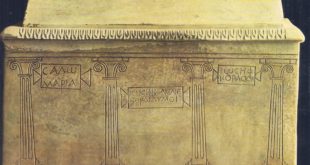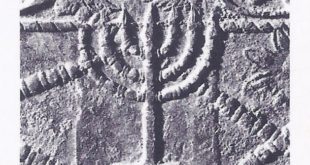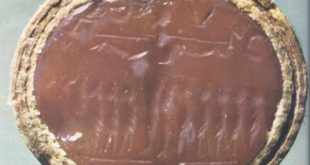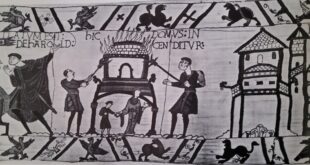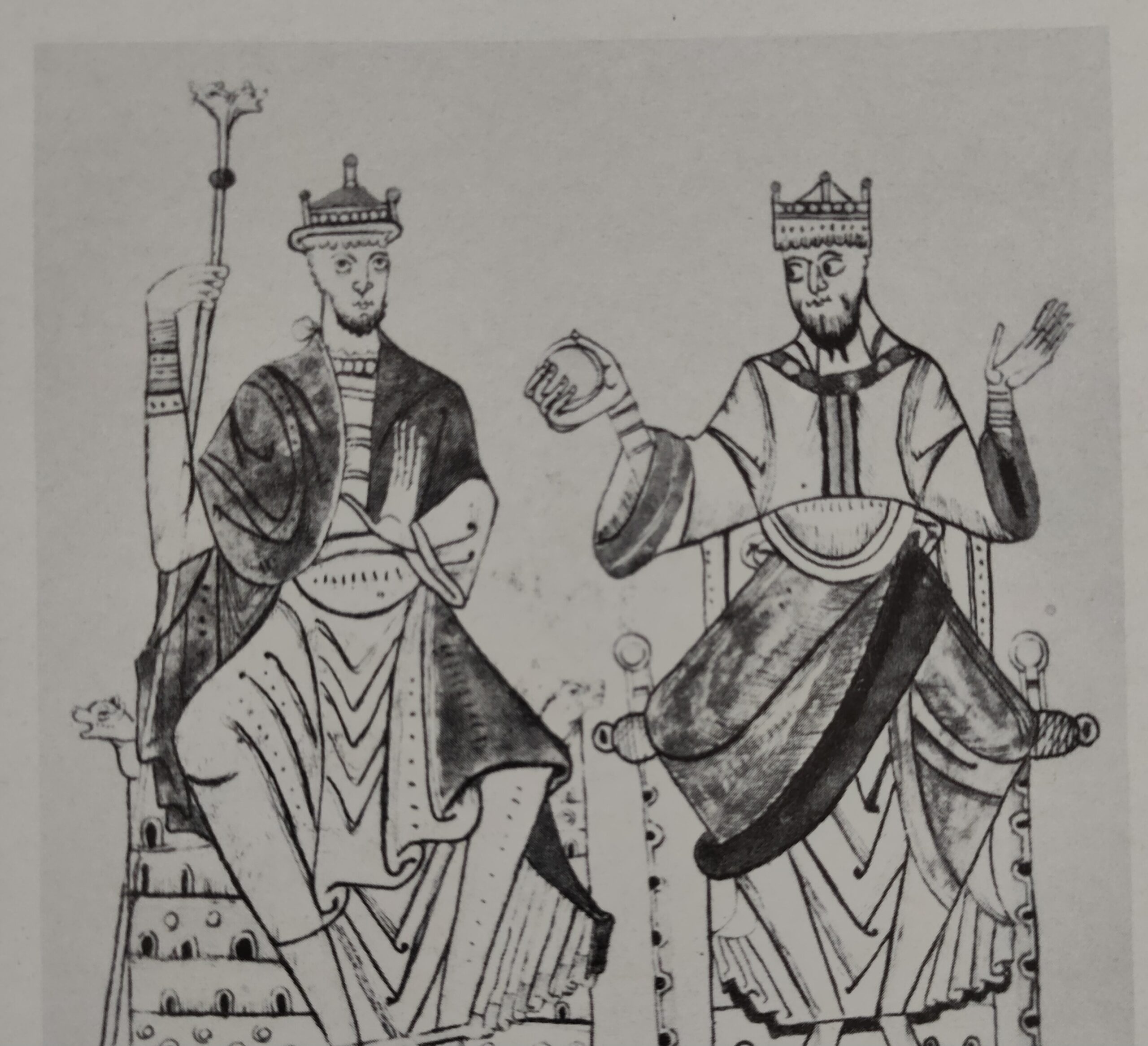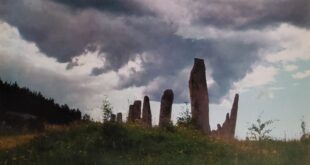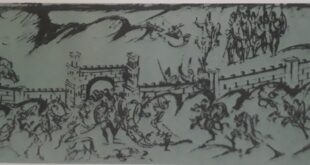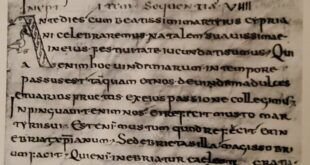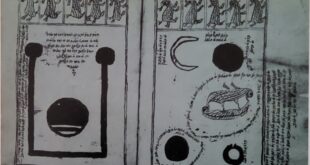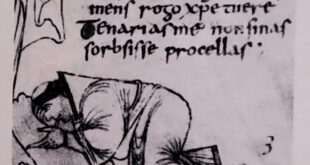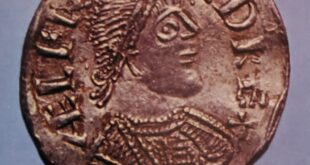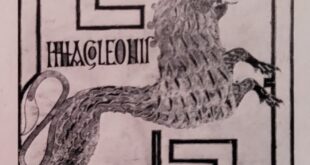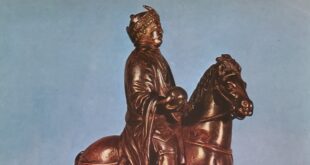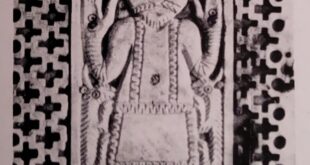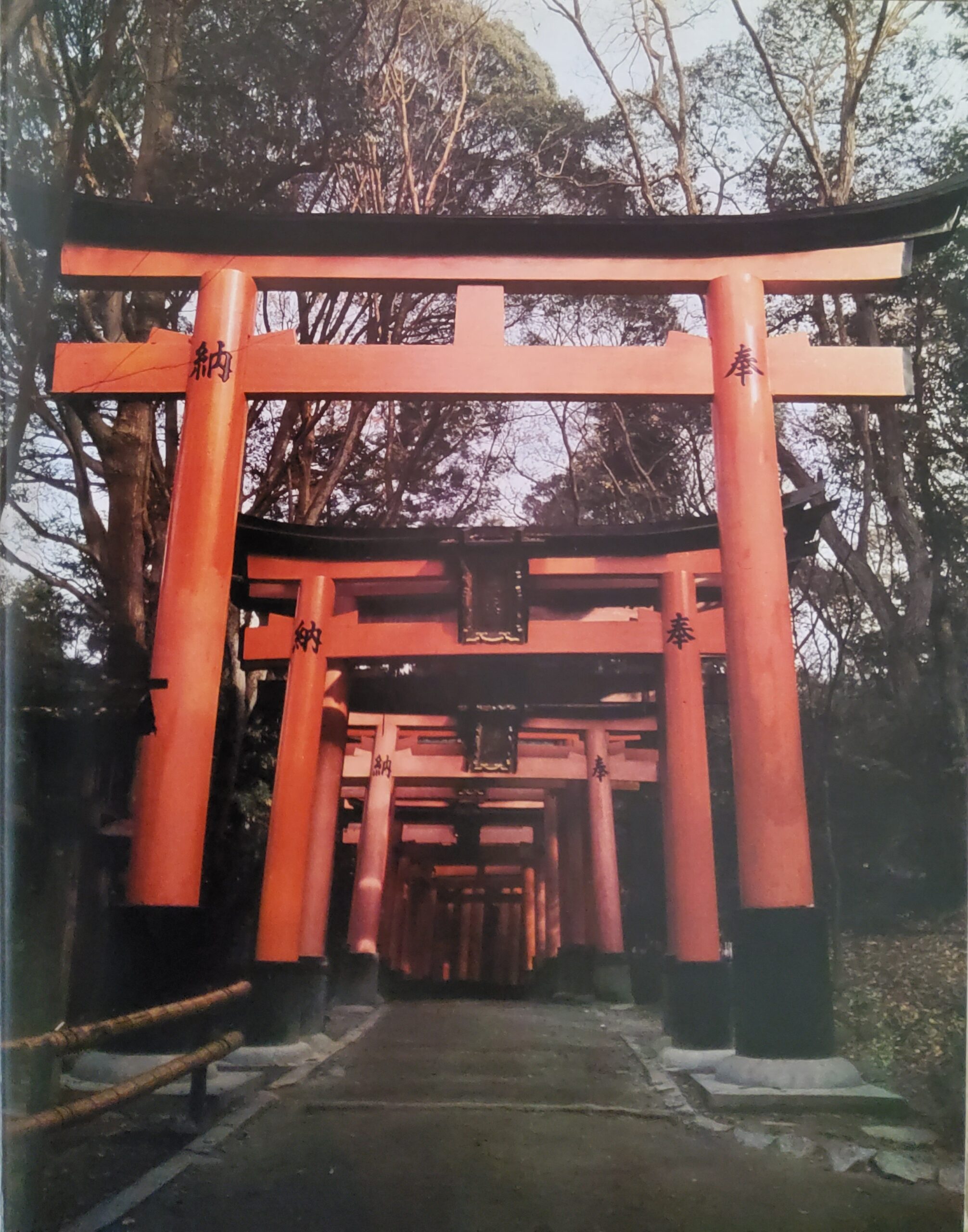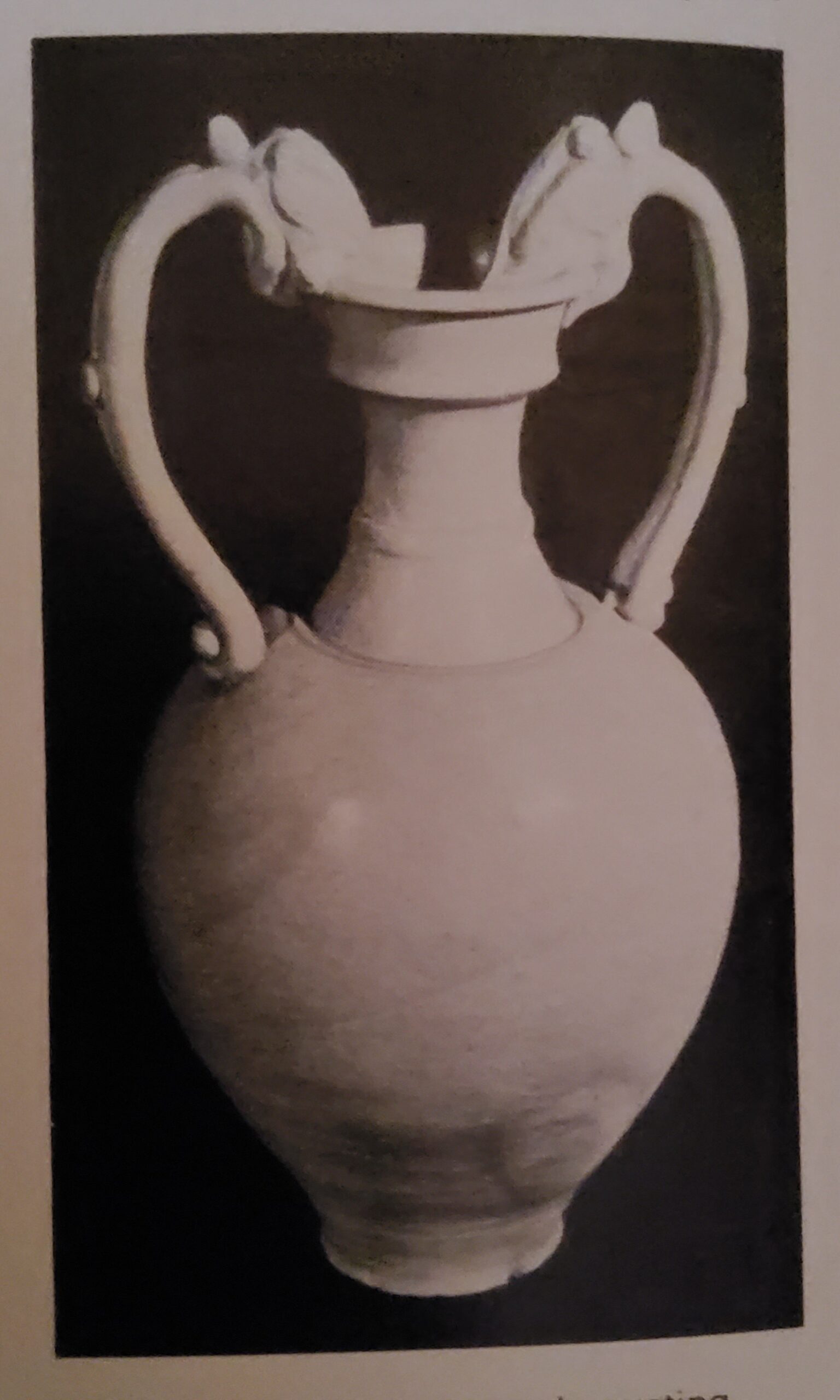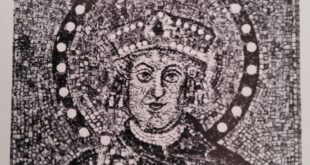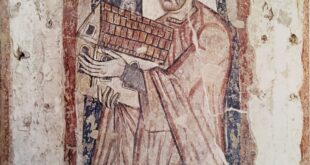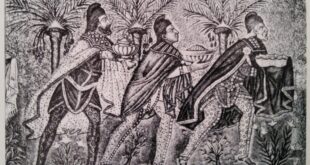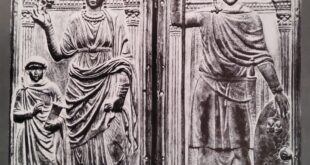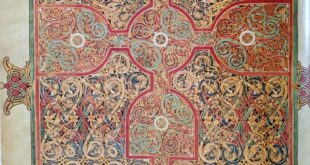The Hebrews were a nomadic people, some of whom settled in Egypt. They had their own God — Yahweh or Jehovah — and in this respect they differed little from the people around them. Yet the Israelites, led by Moses, were convinced that their God had promised them a land of their own and that they must leave Egypt and go to Palestine. Their God was essentially a god of battle and as such, invaluable as long as they were on the march. What would happen once they settled down? Inevitably there were attempts to worship local gods also, but the basic conviction that there was only one god — and a moral god at that — the God of Israel and that the Hebrews were his people, was never forgotten. For this reason the Hebrews are one of the most important peoples of antiquity. The Exodus or departure from Egypt was essential to the fulfillment of that role.
The blazing heat of early summer beat down upon the rocks and sand of the vast and mountainous wilderness of Sinai. In a parched valley, far from any human habitation, a band of some hundred Hebrews, perhaps even some thousands of fugitives from the Nile Delta waited for the orders of their leader, Moses.
These “children of Israel” (Hebrews) formed part of a group of tribes who had migrated into the Land of Canaan from the north several hundred years earlier. All Hebrews claimed a common ancestor in Abraham and all shared a common religious belief. Then famine had struck the land, probably in about 1650 B.C. Some of the tribes of the Hebrews had found food nearby; others, the ancestors of Moses’ group, had wandered as far as Egypt in the search for sustenance and they had remained there as serfs of the pharaohs, engaged in building public works. Though the life had been hard for the Hebrews, there was at least food and water.

The tribes of Hebrews had stayed some four hundred years in Egypt, then had left everything at the behest of Moses. There had been long and stormy arguments between Moses and Pharaoh, probably Merneptah, before the children of Israel (Hebrews) had managed to leave; and the departure itself had been unforgettably dramatic and unexpected. It has come down to us in the legends of ten plagues, each one more destructive than the last. The plagues had driven Pharaoh and the Egyptians to surrender to Moses’ demand that this group of despised serfs be allowed to go and celebrate some strange rite beyond the boundaries of Egypt. Pharaoh had then regretted giving his permission to the Hebrews and there had been a dramatic escape. The children of Israel had successfully crossed the “Sea of Reeds” or the Red Sea and the Egyptian chariots and horsemen pursuing them had met disaster. What precise incidents lie behind these legends of the Hebrews we do not know, but no scholar today would deny that the experience was real, taking place probably about 1280 B.C. Jewry has been celebrating that flight for more than 3,000 years in the festival of Passover and we understand enough about primitive peoples to know that such a record arises only from experience.
The demand to “let my people go” had been made in the name of the God of Israel. For the tribe had retained belief in a single God who had called their ancestors to his especial service. It was to renew this service that, in spite of many misgivings and frequent complaints, the Hebrews had followed Moses into the vast and deserted region of Sinai. The culmination of their pilgrimage was the day of meeting with their God.
Moses was a man who had the irresistible power to gain complete acceptance and obedience from the Hebrews. While his life has attracted so many strange trappings that it is difficult to disentangle truth from legend, we could deny his existence only by creating someone with similar powers living at the same time and performing the same dynamic role in the spiritual evolution of a little band of former serfs. For the sojourn in Egypt of some of the Hebrews is history and the survival of the Jewish people today as a result of the Exodus from Egypt and the events in the Sinai Desert is also history.
Though an Israelite, Moses had not been brought up to the drudgery of making and laying bricks. The Old Testament says that he grew up in the household of Pharaoh himself. If so, it had not made him forget the traditions of his ancestors, the worship of a God of whom there was no image and the discipline of an ethical and moral, as well as a ritual, service to the Deity. Legend speaks of long years in the dry, steppe country east of Sinai, where he married and tended the sheep of his father-in-law, until a vision called him to his law-giving mission to his people.
If legend has surrounded the flight from Egypt and the life of Moses, still more has it surrounded the “giving of the Law” at the foot of the mountain to which the Bible gives the names of Sinai and Horeb. The Bible recounts how Moses climbed to its summit and there spoke face to face with Yahweh, God and Redeemer of the children of Israel. The people waited below, awed by the lightning and thunderclouds hiding the summit of the mountain. We have no reason to doubt that the Ten Commandments — which prohibit murder, adultery, theft, lying, envy and which establish the Sabbath as a holy day — embody the core of the ethical discipline taught by Moses and accepted by the people as a whole. Nor would most scholars today hesitate to ascribe to the same period much of the communal law embodied in the Old Testament. Of particular interest are those laws embodied in the “Code of Holiness”, in which the sanction is not a penalty, but a reminder of the covenant between God, Israel and the obligations that result therefrom. Typical of the laws are these two, concerning the poor and the weak:
When you reap the harvest of your land you shall not reap your field to its very border, neither shall you gather the gleanings after your harvest you shall leave them for the poor and the sojourner: I am the Lord your God. (Leviticus 19: 9-10)
You shall not curse the deaf or put a stumbling block before the blind, but you shall fear your God: I am the Lord. (Leviticus 14)
The central discipline is not any particular set of regulations, but the conviction of the whole people that they had accepted an obligation to live according to the Law, not as an act of obedience to an earthly ruler, but as a covenant between themselves and their God.
These words ascribed to Moses may have been written centuries later, but they contain the essence of the covenant:
See, I have set before you this day life and good, death and evil. If you obey the commandments of the Lord your God, by loving the Lord your God, by walking in his ways, and by keeping his commandments. . . then you shall live and multiply, and the Lord your God will bless you . . . But if your heart turns away and you will not hear . . . I declare to you this day that you shall perish. (Deuteronomy 30: 15-20)
The subsequent history of the children of Israel is the record of continual recall to the true meaning of the covenant, of continual struggle both with idolatry and with social injustice which defiled that covenant.
Some forty years after the giving of the Law, the children of Israel abandoned their nomadic life in and around the deserts of Sinai for a settled habitation in Palestine. According to their tradition, this had been promised them by their God. Palestine at that time contained an agglomeration of city-states, small kingdoms and semi-nomadic tribes of mixed ethnic origin. Still scattered among these people of Palestine were relatives of the children of Israel, who like them claimed descent from Abraham and to some extent retained the worship of his God, but they had not completely resisted the local gods and goddesses and the fertility rites by which they were worshiped.

There was little to distinguish the newcomers from the rest of their neighbours. They interpreted divine will in terms of very human ambitions. They were prepared to massacre and enslave other tribes and they regarded the covenant with their God as an exclusive privilege. The experience of the desert, however, had given them particular status. One of the most remarkable developments during the next few centuries is that their settled relatives, who in fact had not undergone the long humiliation of Egyptian servitude, came to adopt the Egyptian experience as that of their own ancestors. The nature festivals that they shared with the peoples around were transformed into historical commemorations and remodeled as anniversaries of the Exodus from Egypt, the experience of Sinai and the acceptance of their God, Yahweh. Even that name was brought to them by those who had experienced the hardships of Egypt and the rigours of the desert.
In the earliest days of the settlement in Palestine the religion of Yahweh was preserved by groups of ecstatic devotees. Gradually they became dominated by the prophets, who proclaimed righteousness, denounced social injustice as fervently as religious idolatry and spoke with deepening insight about the nature and demands of a righteous God. It needed all their eloquence to instill into the people the true meaning of the covenant and the fact that it involved responsibilities rather than privileges. “You only have I known of all the peoples of the earth,” cries Amos in the name of Yahweh. “Therefore I will punish you for all your iniquities.” (Amos 3:2) The prophets also had to teach their people that the statement “you only have I known of all the peoples” did not mean that God had no concern for the rest of his creation. It is again Amos who says:
“Are you not like the Ethiopians unto me, 0 people of Israel?” says the Lord. “Did I not bring up Israel from the land of Egypt and the Philistines from Caphtor and the Syrians from Kir ?” (Amos 9:7)
Pursued by Pharaoh’s host, the Hebrews go to Canaan
The Children of Israel were soon to meet disaster. They had established two small kingdoms which were constantly engaged in foolish quarrels with each other. The northern kingdom, with its capital at Samaria, was swallowed up by the Assyrian empire in about 721 B.C. and the ruling classes were deported to northern Mesopotamia. As an identifiable and creative society it disappeared from history. Less than two hundred years later, in 587 B.C., the southern kingdom, with its capital at Jerusalem, was likewise overthrown and its ruling classes deported by the Babylonians, who had succeeded the Assyrians. When Babylon was in turn destroyed by the Persians, Cyrus, the Persian king, issued an edict in 538 B.C. allowing the descendants of these exiles from the southern kingdom to return and many did so. At the centre of the southern kingdom had been the tribe of Judah, hence its inhabitants were known as “Judahites” — Hebrew, Yehudim; Latin, Judaei; English, Jews.

Though the story deals henceforth with “Jews,” it is probable that descendants of the northern kingdom who wished to remain loyal to Yahweh migrated from northern Mesopotamia to the great centres of Jewish cultural life established by the Babylonians in the southern part of the land between the Tigris and the Euphrates. This was to be a centre of the Jewish world for many centuries, indeed surviving until modern times.
During the century before Cyrus allowed them to return, the exiles had made two vital contributions to the future of their people. First, deprived of their Temple in Jerusalem, they had evolved a non-sacrificial form of worship, Sabbath by Sabbath, wherever Jews lived. This was the worship of the synagogue and its present form is familiar to millions today wherever there are Christian churches or Muslim mosques. For it was without priestly sacrifices or rituals and consisted of prayer, praise and instruction, centered on Holy Scripture.

The second achievement of the exiles lay in the collecting and editing of national records, history, prophetic utterances, psalms and sacred songs, from which the Scriptures were compiled. What is most striking about this compilation is that the whole of Jewish history is written in terms of obedience to the covenant. Kings whose victories added wide dominions and the revenue of subject peoples are dismissed in a few verses, with the words that they “did evil in the sight of the Lord.” Kings like David, who were the object of deep affection and veneration, were represented without any attempt at whitewash. The words of the prophets, who spared no one in their denunciations, are preserved with the utmost care.
The books of the Old Testament cover the traditions and chronicles of more than a thousand years. We can trace through them the slow growth of a national conviction that obedience to the covenant was the true goal of national life, but it was not until after these books were completed that those who had for many generations been pioneers and fighters for righteousness had their reward. In the supplementary books, called The Apocrypha, it is recorded how in 166 B.C. Antiochus, King of Syria, tried to make Israel desert its God. They were commanded to eat forbidden meats, “but many in Israel stood firm and were resolved in their hearts not to eat unclean food. They chose to die, rather than to be defiled by food or to profane the holy covenant; and they did die” (Maccabees: 62-63). In consequence ordinary men and women became the first recorded martyrs in the long history of religious persecution.
To Freedom in the Promised Land, Israel
The return to Judaea was a remarkable event, for in Babylon Jews had been prosperous and self-governing. They had a rich territory, which, compared with the infertile hills and ruined towns and villages around Jerusalem, should have argued in favour of staying in exile. Jerusalem (often called Zion) and “the land of Israel” arouses an affection in the Jewish mind that may be illogical, may be irritating to others, but is quite a certain fact of history. The land of Babylon, for all its wealth, was exile, as the psalmist so well expressed:
By the waters of Babylon we sat down and wept, when we remembered thee, O Zion.
As for our harps we hanged them up upon the trees that are therein.
For they that led us away captive required of us then a song and melody in our heaviness: “Sing us one of the songs of Zion.”
How shall we sing the Lord’s song in a strange land?
If I forget thee, 0 Jerusalem, let my right hand forget her cunning.
(Psalm: 137: 1-5)

The return did not take place all at once, but in a series of caravans and the future leader of the Jews came in one of the later groups. His name was Ezra, and he, together with his companions and disciples, ensured by their wise leadership the future of Judaism and the Jewish people. They brought with them from Babylon the institution of the synagogue and the main elements of a sacred Scripture. Ezra, however, added provision for a system of adult education by which the Law was regularly taught to the whole people.

When Jerusalem had been rebuilt from its ruins and the Temple was once more the centre of national worship, Ezra arranged a solemn reading of the whole Law “before the Water Gate.” The reading covered several days and was followed by a renewal, by the whole people, of the covenant with Yahweh. Ezra did not merely read. He “gave the sense and caused the people to understand the meaning” (Nehemiah 8:8). Systematic teaching of the Law continued not merely on special occasions, but in every town, week by week; and by a trained body of teachers, recruited at first from local priestly families. They came to be known as scribes, because it was their duty not only to teach the Law, but to write copies of it, so that gradually every synagogue came to possess its own copy as well as its own teacher of the Law.

The inevitable consequence of this permeation of the whole life of the people by the revelation of Sinai soon followed. The local teachers became the local magistrates, for much of the Law dealt with matters, criminal and civil, that required adjudication; and the local magistrates in turn found themselves involved in the responsibility of reinterpretation necessary when a written code must be constantly adjusted to changes and developments in society. Judaism and Jewry were thus equipped to survive when Temple and State were destroyed in the disastrous wars with Rome.


